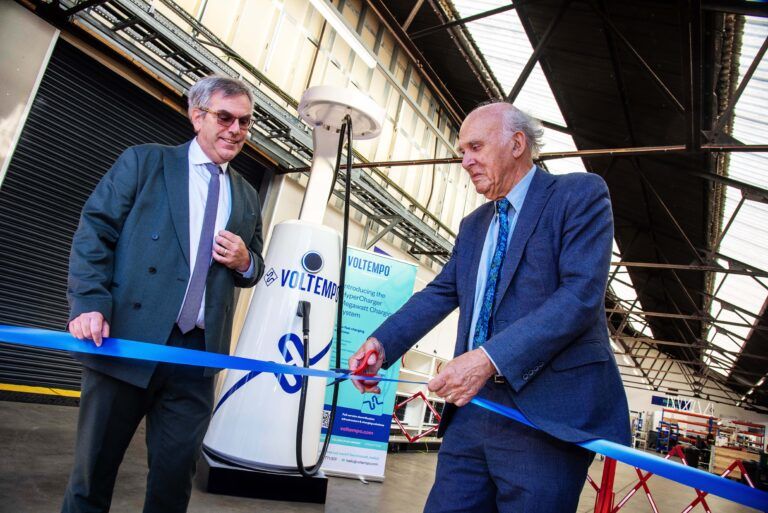Voltempo has started series production of its HyperCharger megawatt charging system at Tyseley Energy Park in Birmingham. The company has grown from three employees to over 50 in the past 20 months, and the facility was opened by Sir Vince Cable earlier in the month.
The HyperCharger is part of the UK government’s £200 million Zero Emission HGV and Infrastructure Demonstrator Programme, delivered with Innovate UK. Voltempo leads the eFreight 2030 consortium as the charging infrastructure provider.
Under the eFreight 2030 project, seven fleets and two charging hubs are deploying HyperChargers with at least six bays and 1,000kW capacity each. Two additional fleets are adopting lower-powered Voltempo chargers. The first site is operational, and by the second quarter of 2026, the project will have deployed what the company describes as the UK’s largest network of megawatt charging system-capable chargers. Each unit can be upgraded on-site to support trucks with MCS charge ports at 700kW or higher.
The HyperCharger features a “halo” design that lifts and protects charging cables. The system uses an LED interface without touchscreens, cards or apps, allowing drivers to plug in and charge. It complies with OCPP 2.0 standards for compatibility with plug-and-charge enabled vehicles.
The system can deliver over one megawatt of power distributed across up to six vehicles simultaneously. It uses low-power LEDs and is designed to consume less standby energy than conventional chargers.
“Starting series production of the HyperCharger is a defining moment – not just for Voltempo, but for the UK’s journey towards zero-emission freight,” said Michael Boxwell, CEO of Voltempo. “Our technology has been designed from day one to meet the real-world needs of logistics operators, and we’re proud to be creating green jobs and driving innovation right here in Birmingham.”
Sir Vince Cable said: “This is a major step forward – not just for Voltempo, but for the UK’s transition to zero-emission road freight. The HyperCharger is central to the success of the eFreight 2030 programme and demonstrates how British innovation can create skilled jobs, attract investment, and build the infrastructure we need to compete in the global clean transport economy.”





